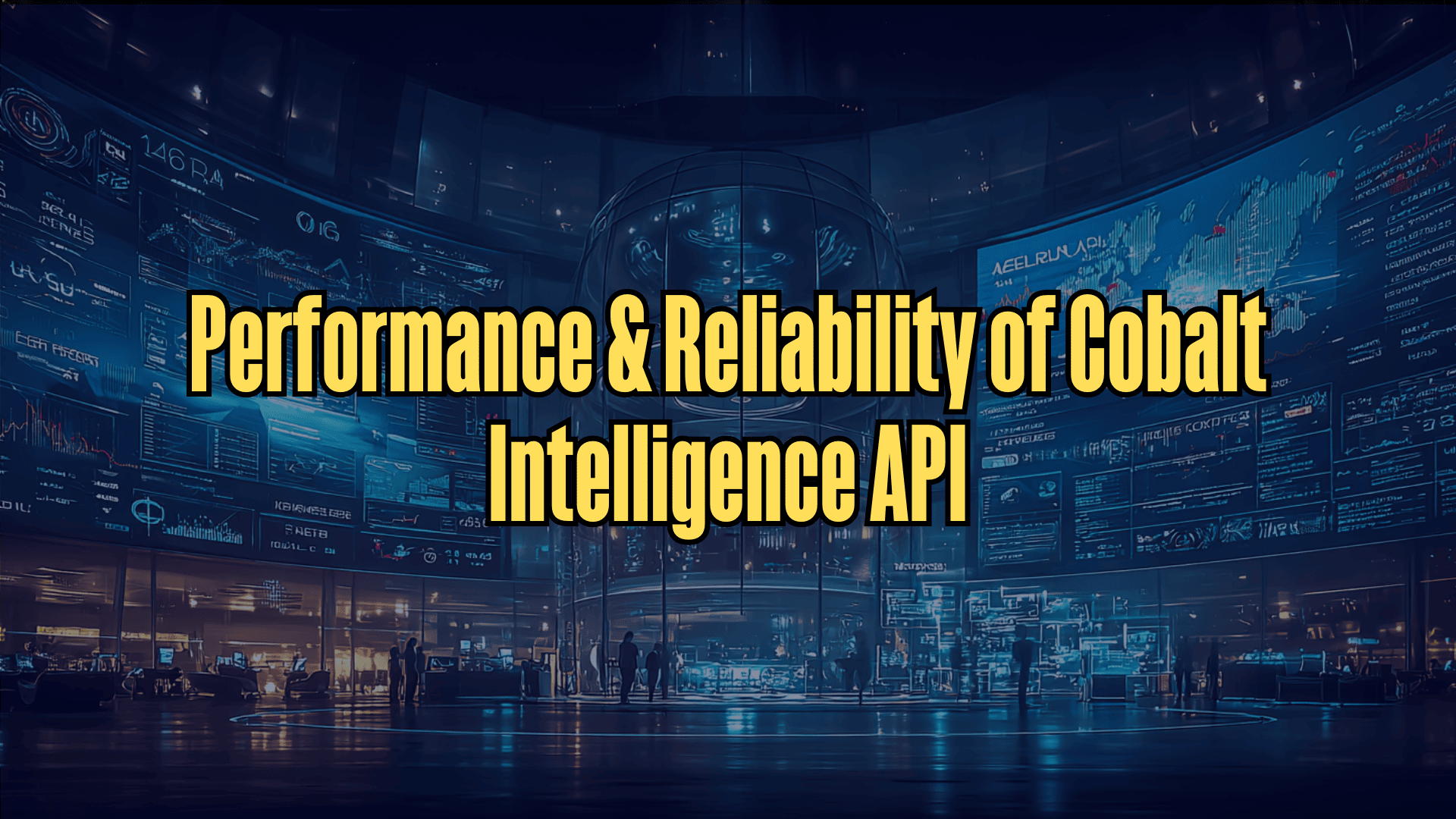If you're still making funding decisions without checking court records, you're flying blind in the most dangerous airspace. While your competitors waste time with outdated credit reports, smart alternative lenders are tapping into real-time legal intelligence that reveals what businesses are really hiding.
Here's the brutal truth about New York State court record searches and why they're about to become your most valuable underwriting tool.
New York Is Where Business Gets Serious: More commercial litigation happens in New York than most other states combined. Even businesses headquartered elsewhere end up in NY courts through supplier relationships, banking disputes, and commercial contracts. Miss New York court records, and you're missing the biggest risk indicators.
Better Intelligence, Faster Decisions: Limited jurisdiction coverage means deeper integration and more sophisticated monitoring. You get historical case patterns, judgment enforcement tracking, and early warning signals that generic nationwide services can't provide.
New York Coverage: The Financial Intelligence Goldmine
When you search New York courts, you're tapping into the nerve center of American commercial litigation.
Why NY Court Access Changes Everything:
New York State includes major business centers beyond NYC - Albany, Buffalo, Rochester, Syracuse. State-wide coverage ensures you're not missing judgments filed where businesses operate warehouses, manufacturing, or back-office functions that could impact operations.
Historical Pattern Recognition: State-level access provides context that county searches can't deliver. You can identify repeat defendants, escalating legal issues, and management patterns that indicate fundamental business problems requiring immediate attention.
Commercial Litigation Central: New York processes more business disputes, debt collections, and commercial contract cases than anywhere else. A business with NY court problems isn't just having local issues - they're in serious financial trouble that will impact your loan performance.
Judgment Enforcement That Actually Matters: New York judgments carry real weight. They're easier to enforce across state lines and represent credible financial threats. When you see a NY judgment, you're looking at a liability that can actually hurt the business, not just paperwork.
Early Warning System: New York's efficient court system processes cases faster than most states. Recent judgments appear quickly, giving you advance warning of financial distress before it shows up anywhere else. That's intelligence gold for portfolio protection.
Real Risk Assessment: Beyond Credit Score Theater
Court records reveal financial distress and management problems that credit reports completely miss.
Financial Trouble Before Credit Deterioration: Businesses often maintain payments to major creditors while stiffing smaller vendors who then pursue legal action. Court judgments provide 30-90 day advance warning of cash flow problems that will eventually destroy loan performance.
Management Quality Red Flags: Multiple vendor disputes, employment lawsuits, and contract breaches reveal operational incompetence that no financial statement captures. Bad management destroys businesses regardless of initial cash flow or collateral.
Immediate Asset Threats: Active judgments represent direct claims against business assets and cash flow with enforcement mechanisms that can freeze accounts and garnish receivables. These aren't theoretical risks - they're immediate threats to your collateral position.
Direct Court Access: Real Intelligence, Not Credit Bureau Garbage
Pulling data directly from court systems gives you authoritative information weeks before credit bureaus catch up.
Why Direct Access Destroys the Competition:
Real-Time Legal Intelligence: You get case information as soon as it hits the official record, often 60-90 days before credit reports. This timing advantage allows proactive portfolio management and helps you avoid funding businesses with recent legal problems.
Complete Case Details: Unlike credit bureau summaries that tell you almost nothing, direct court access delivers plaintiff names, case amounts, filing dates, and current status. You can distinguish between serious commercial disputes and minor collection actions.
Official, Verified Information: Court records are legal documents with accuracy requirements, unlike third-party databases filled with errors and outdated information. When you're making significant lending decisions, you need verified intelligence from the source.
Specialized Tool for Serious Lenders
Court record searches aren't standard because most lenders aren't serious about risk management.
Why Specialized Application Increases Profitability:
MCA Market Evolution: The merchant cash advance industry has learned that traditional credit metrics don't capture real business risk. Court records provide the additional intelligence that separates temporarily challenged businesses from fundamentally broken operations.
Competitive Underwriting Advantage: While competitors rely on standard credit checks, court record integration creates superior risk assessment. This enhanced due diligence enables better pricing, more accurate approvals, and ultimately better portfolio performance.
Product-Specific Risk Management: Different lending products require different intelligence. Court records are particularly valuable for unsecured lending and working capital loans where traditional collateral protection is limited and hidden risks can destroy returns.
Enhanced Intelligence Framework: Beyond Traditional Credit
Court searches don't replace credit checks - they expose what credit reports deliberately hide.
Building Complete Risk Intelligence:
Coverage of Credit Reporting Gaps: Credit bureaus miss smaller judgments, recent filings, and cases involving non-traditional creditors. Court searches fill these blind spots and provide complete visibility into legal obligations that could impact loan performance.
Timing Advantage Over Credit Reports: Credit reporting lags court activity by months. Direct court searches provide immediate access to recent filings, allowing responsive risk management in fast-moving markets where business conditions change rapidly.
Context for Credit Anomalies: When credit reports show judgments, court records provide case details, payment arrangements, and current status. This context enables nuanced decision-making instead of automatic declines based on incomplete information.
Current Scope: State Focus, Federal Future
No federal court integration yet, but state coverage captures the legal activity that actually matters for business lending.
Understanding Current Intelligence and Future Value:
State Courts Handle Business Risk: Most business-related litigation occurs in state courts - commercial disputes, debt collection, contract breaches that directly impact lending risk. State coverage captures the volume of legal activity most relevant to funding decisions.
Federal Integration Value: Future federal access would provide bankruptcy proceedings, major commercial litigation, and regulatory enforcement - severe business risks that represent fundamental threats to business viability and loan performance.
Market-Driven Development: Federal integration consideration reflects industry recognition that comprehensive legal intelligence provides competitive advantages. Platform development follows market sophistication toward enhanced due diligence capabilities.
Multi-State Reality: Strategic Manual Backup
Manual searches for non-covered states allow strategic resource allocation while maintaining investigation flexibility.
Managing Complete Intelligence Needs:
Efficient Resource Deployment: Automated searches for high-volume areas combined with manual processes for special situations balances operational efficiency with comprehensive coverage. You automate routine work while investigating high-risk deals thoroughly.
Risk-Based Investigation Strategy: Not every loan requires multi-state searches. Selective manual processes based on loan size, risk profile, or specific red flags ensure thorough investigation where it matters while maintaining efficiency for standard deals.
Platform Development Intelligence: Manual requirements highlight future automation opportunities. Understanding where manual processes are most needed helps anticipate platform enhancements that will streamline operations.
Platform Architecture: Operational Reality
Separate portal access reflects the specialized nature and security requirements of legal data systems.
Managing Multi-Platform Intelligence Operations:
Specialized Security for Legal Data: Separate access ensures robust security and data integrity for sensitive court information that could impact business relationships and legal strategies. This security is crucial when handling information that affects ongoing litigation.
Workflow Optimization Opportunities: Current platform structure allows efficient workflow development incorporating court searches at appropriate underwriting points. This might involve batch processing, risk-triggered searches, or specialized team access for enhanced due diligence.
Integration Evolution: Current limitations represent development opportunities rather than permanent constraints. Market demand for comprehensive legal intelligence drives platform providers toward unified workflow solutions.
Foundation Intelligence: Business Structure Context
Secretary of State data provides the corporate structure context that makes court records meaningful.
Building Comprehensive Business Intelligence:
Legal Context Foundation: Corporate registration information helps interpret legal actions and assess their impact on business operations and debt capacity. Understanding business structure makes court records more actionable for risk assessment.
Cross-Reference Verification: Combining corporate data with court records enables comprehensive verification and identification of discrepancies indicating fraud or misrepresentation. This cross-referencing enhances overall due diligence reliability.
Complete Risk Assessment: Corporate registration combined with legal history provides comprehensive business legitimacy and operational stability assessment. This holistic approach identifies risks missed by examining single data sources.
Vertical Intelligence: Contractor Licensing Integration
Contractor license verification addresses construction industry risks while court records identify enforcement and dispute patterns.
Specialized Industry Risk Management:
Construction Risk Factors: License verification covers regulatory compliance and professional competency while court records identify disputes and enforcement actions. Combined intelligence provides comprehensive contractor risk assessment.
Regulatory Compliance Protection: Licensing verification ensures regulatory requirements are met while court records identify violations or disputes threatening licensing status. This combination protects against regulatory risks impacting operations.
Professional Track Record: Licensing data combined with court records provides insights into both qualifications and operational performance. This comprehensive view identifies credentialed contractors with poor performance history or operational challenges.
Real-Time Intelligence: Operational Advantage
Real-time court data access with cached backup ensures continuous availability of current legal intelligence.
Maximizing Intelligence Timeliness:
Immediate Risk Detection: Real-time access identifies court judgments immediately upon filing, providing instant notification of problems with existing borrowers or new applicants. This timing enables proactive portfolio management and immediate risk response.
Decision-Making Confidence: Current, verified information reduces uncertainty and provides confidence that risk assessments use the most recent available data. This reliability is crucial for competitive markets requiring quick, accurate decisions.
Operational Reliability: Cached backup systems ensure continuous access despite source system downtime. This reliability protects operations and maintains consistent due diligence processes for uninterrupted service delivery.
Comprehensive Documentation: Audit Trail Protection
Complete data capture with screenshot verification provides defensible due diligence records.
Building Bulletproof Documentation:
Complete Information Capture: Comprehensive data collection ensures no relevant information is missed, providing thorough business status, legal action, and compliance documentation. This completeness reduces oversight risks impacting lending decisions.
Regulatory Compliance Documentation: Screenshot capabilities provide verifiable audit trails demonstrating thorough due diligence for compliance and risk management. This documentation protects against regulatory challenges and evidences appropriate procedures.
Decision Support Infrastructure: Complete data capture supports detailed risk analysis and provides documentation for credit decisions, portfolio management, and regulatory reporting. This comprehensive foundation justifies lending decisions and supports ongoing monitoring.
The Bottom Line: Court Records as Competitive Weapon
New York State court record searches represent a significant competitive advantage for alternative lenders serious about risk management. The intelligence value from accessing comprehensive legal data provides risk assessment capabilities that traditional credit-based underwriting simply cannot match.
Smart implementation requires understanding current capabilities and limitations while building efficient workflows that incorporate legal intelligence strategically. The key is using court records to identify risks that credit reports miss entirely, providing advance warning of financial problems that could destroy loan performance.
In today's competitive alternative lending environment, the additional intelligence from court record searches often determines the difference between profitable lending and portfolio disasters. As market sophistication increases, comprehensive legal intelligence becomes essential for maintaining competitive position and protecting returns.
Stop funding blind. Start using the legal intelligence that reveals what businesses are really hiding.












.png)